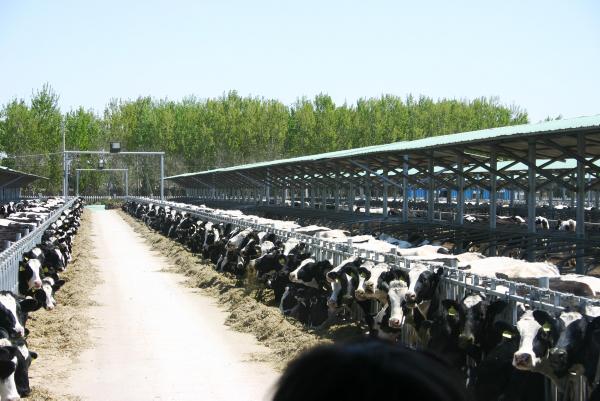It will be the third quarter of 2015 before the backlog of dairy product is cleared from the market, according to a senior dairy analyst in China.
Speaking in Beijing, Sandy Chen, senior analyst with Rabobank Shanghai, said that Chinese milk production is growing again, but domestic demand has been weak. This has led to stock accumulating at processing level.
Import buying has also been down significantly in the second half, with import volumes in September down 53% compared with the same month last year.
“We need to digest the increased surpluses in the second half of the year, work through the excess stock, without a rise in Chinese demand,” he said.
According to Chen, the market should start to improve by the third quarter of 2015. He said the inventory should be gone and production should have slowed down.
However, one concern he did have is that normally when demand slows in China there are markets in the Middle East that absorb it. But this hasn’t happened, as high prices have been seen as a stump and the customers are not buying in this market.
From an Irish perspective, one positive to emerge from this week’s trade mission is that local processors are paying 58c/litre for milk. Local exports estimate that production costs are 40c/litre.
Meanwhile, the overall dairy product price index dropped by 0.3% at this week’s Global Dairy Trade auction run by Fonterra.
Quotes from the Dutch dairy board also remained very weak yesterday, with skimmed milk powder at just €1,860/t, a 44% drop since the start of the year. Butter was quoted at €2,990/t.
IFA National Dairy Committee chairman Sean O’Leary said that the forward price changes in the GDT pointed to global markets starting to stabilise. He is seeking a meeting with, and action from, the new EU agriculture commissioner Phil Hogan.
Supports
“Further market supports need to be activated promptly, to counter the continuing effect of the ban on EU exports to Russia,” he said.
“A targeted reopening of export refunds would help exporters locked out of Russia to find alternative markets. We also believe the 2013/2014 €409m superlevy fine, currently being collected around Europe, must be fully utilised to support dairy markets.
“If implemented rapidly and decisively, we are clear that these measures would all help turn around market sentiment,” he added.






 This is a subscriber-only article
This is a subscriber-only article










SHARING OPTIONS: